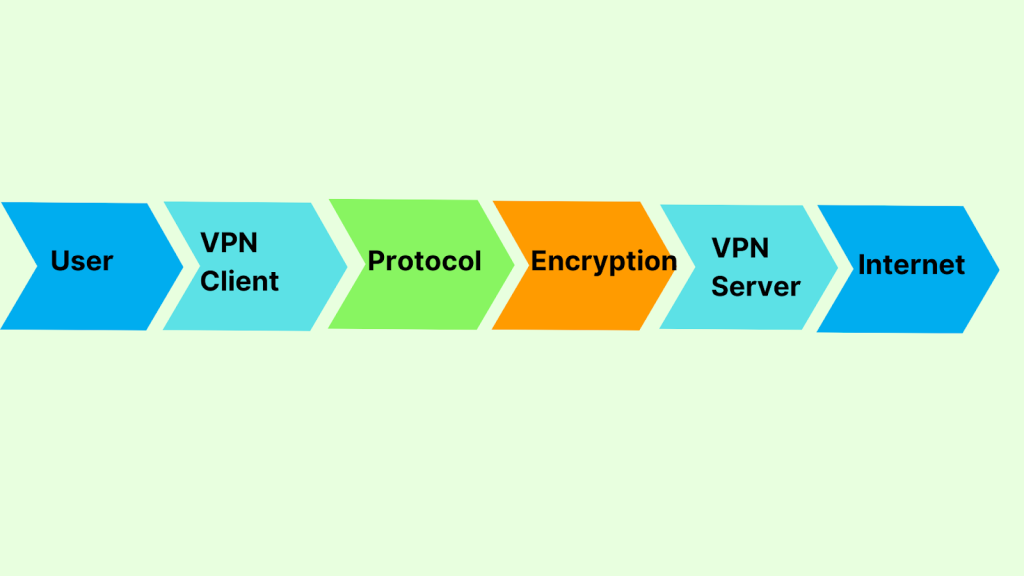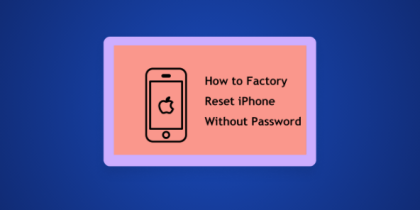VPNs keep your digital identity secure by encrypting your internet connection and hiding your IP address. But, not all VPNs work the same. The difference is in their protocols. VPN protocols refer to the guidelines that determine how data is transferred securely between your device and a VPN server. You can think of them like highways – some are designed for speed, others for security.
Each protocol will use selected encryption and tunneling methods that will build a secure “path” to your data. Picking the correct protocol will determine the overall experience, including speed, encryption strength, and privacy protection. With PureVPN, you can easily switch between different secure protocols for a perfect balance of speed, privacy, and protection regardless of wherever you are.
Understanding VPN Protocols – The Foundation of a Secure Connection
A VPN protocol outlines how your VPN connection transmits your information in a secure manner. It is the system responsible for encryption, authentication, and data relay from your device to the VPN server.
It differs from VPN encryption as encryption is the method that ciphers your data into unreadable code, however the VPN protocol dictates how and when that encryption occurs. The protocol orchestrates handshakes, while encryption protects confidentiality and integrity of the data.
In other words, the protocol establishes the secure pathway, and the encryption protects every step. Together, they create a private, tamper-proof tunnel between you and the internet.

Key VPN Protocols and How They Differ
By 2025, WireGuard is the quickest VPN protocol available, and OpenVPN is still considered the industry standard for privacy with its AES-256 encryption while IKEv2/IPSec is known for being more stable on mobile devices and has faster reconnection speeds. All of these protocols present different balances of speed, security, and reliability. The remainder of this part will break down each of the main VPN protocols and describe their main differences in speed, encryption, and their reliability compared to each other to help you understand how each of these protocols impact your overall experience.
OpenVPN (TCP & UDP)
OpenVPN is an open-source, renowned for both its security and versatility. It works on any platform, and supports both TCP (stable) and UDP (faster) modes. It is a little slower compared to other VPN protocols due to its heavy encryption, but it is extremely stable if privacy is a key concern to the user.
WireGuard
WireGuard is the most modern, lightweight and secure protocol, with cutting edge cryptography. It uses fewer lines of code, which reduces vulnerabilities and generally increases performance. WireGuard is great for streaming, gaming and mobile use due to its incredible speed and stability.
IKEv2/IPSec
It is great for mobile users, because it automatically reconnects when you go back and forth from Wi-Fi and data. It provides great speeds with good encryption making it suitable for business or travel use.
L2TP/IPSec
It provides good security with a combination of tunneling and encryption, but has lower speed. A good option for older devices or legacy systems having limited protocol support.
SSTP & PPTP
SSTP is secure but works in Windows environment only while PPTP is fast but is outdated and insecure, and is no longer recommended for online surfing today.
Comparing Speed, Security, and Compatibility
When selecting a VPN protocol, it is important to know how each performs in terms of speed, security, and compatibility. Certain protocols are designed for fast streaming and gaming, while others are intended for military-grade encryption, or to work consistently across multiple devices. This comparison will allow you to choose the VPN protocol that best suits your needs:
| Protocol | Speed | Encryption | Security Level | Best Use Case |
| WireGuard | Very Fast | ChaCha20 | High | Streaming, Gaming |
| OpenVPN | Moderate | AES-256 | High | Privacy, Remote Work |
| IKEv2/IPSec | Fast | AES-128/256 | High | Mobile Users |
| L2TP/IPSec | Medium | AES-256 | Medium | Legacy Systems |
| PPTP | Fast | MPPE | Low | Not Recommended |
How VPN Protocols Impact Privacy and Security
VPN protocols play a major role in defining your level of privacy. But using older protocols (PPTP), weak ciphers, or poor configurations could create exposure and potentially expose your private information. Therefore, you need to know the impact of VPN protocol on privacy and what it determines:
- Encryption algorithms: Strong ciphers such as AES-256 and ChaCha20 render your data unreadable.
- Key exchange mechanisms: Secure handshakes mitigate man-in-the-middle attacks.
- Authentication mechanisms: Ensure the integrity of data to avoid tampering.
OpenVPN provides reliable, military-grade security with AES-256 encryption, while WireGuard is faster and modern with its use of ChaCha20 as its encryption stream, all while maintaining secure connections. Both protocols are trusted to protect data privacy and provide encryption and anonymity regarding your activity online.
Choosing the Right Protocol for Your Needs
When it comes to streaming Netflix, gaming, or remote work, selecting the best VPN protocol can make or break your experience. Some may prioritize speed and latency in order to have better streaming experiences or gaming, while others may prioritize security and stable connections in a remote access or business context. Making the right protocol choice will help ensure that your VPN connection fits your use-case and provides you with the best speed.
- Gamers & Streamers: Choose WireGuard or OpenVPN (UDP) to ensure blistering-fast speeds.
- Businesses & Remote Workers: Choose OpenVPN (TCP) to maintain safe, stable connections.
- Mobile Users: Choose IKEv2/IPSec for easy switching between different networks and reliability.
Why VPN Providers Like PureVPN Focus on Protocol Versatility
Leading VPNs such as PureVPN emphasize flexibility by providing several protocol options like switching between WireGuard, OpenVPN, and IKEv2, to cater to varying needs of users. It allows you to choose a protocol, depending on whether you prioritize speed, security, or stability, among other options.
PureVPN even features automatic protocol selection, which allows non-technical users to get the optimal performance without technical know-how. PureVPN offers speedy performance with their 20 Gbps servers and smart routing technology that allows you to experience seamless, secure, and incredibly fast connections, wherever you are.
Common Misconceptions About VPN Protocols
Many users think that all VPN protocols are the same, or that faster must equal safety.
But the reality is, context is important: performance varies depending on location, server load, ISP throttling, and intended usage. A faster protocol might be more suitable for streaming than attempting to move confidential data.
The Future of VPN Protocols and Privacy Standards
Emerging trends are transforming the era of VPN security. These developments will result in even greater privacy and more robust VPN technology for users anywhere in the world.
- Post-quantum encryption will help prevent data theft via future quantum decryption.
- Decentralized VPN models (dVPNs) will enhance transparency and reduce the amount of centralized data.
- AI-powered routing will dynamically optimize speed and performance in real-time.
Conclusion
The choice of the right VPN protocol depends on the preferred balance of speed versus security. Understanding the VPN protocols and their implications on speed and security can improve the VPN experience – whether those uses include smooth streaming or secure and anonymous web browsing, or any combination of both, what the users are really after is the ideal balance for their needs.








